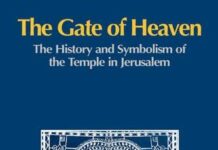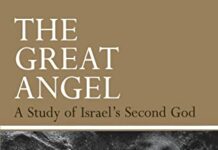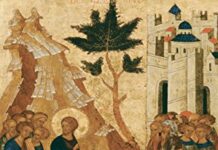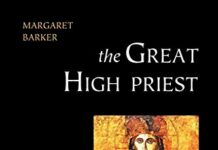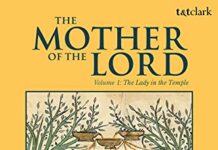
Ebook Info
- Published: 2009
- Number of pages: 338 pages
- Format: PDF
- File Size: 2.10 MB
- Authors: Margaret Barker
Description
Margaret Barker contributes a characteristically Christian voice to contemporary theological debates on the environment. Most of the issues we face today were not those that faced the early Christian community and so there are often no directly relevant biblical teachings. Barker’s starting point is the question of what Jesus himself would have believed about the Creation? What could the early Church have believed about the Creation? She then shows how much of this belief is embedded, often unrecognised, in the New Testament and early Christian texts. It was what people assumed as the norm, the worldview within which they lived and expressed their faith. Barker establishes the general principles of a Christian view of Creation. Some of what she says will show how current teaching would have been unfamiliar to the first Christians, not just in application but in basic principles.
User’s Reviews
Editorial Reviews: Review ‘One of our most important tasks at present is to bring the Bible into conversation with pressing environmental challenges. Margaret Barker has done just that with scholarly breadth and compassionate insight. This is an invaluable and much needed contribution.’ – Mary Evelyn Tucker, Yale University, New Haven, CT, USA (Mary Evelyn Tucker)’Invoking science and religion where economic theory fails is a powerful way of convincing us all that there are limits to the carrying capacity of our planet. Margaret Barker’s book provides a wonderful and thought provoking analysis of how the environmental concerns we have and the lessons we learned from dealing with them were already known and worded in religious writings of the past. We should thank her for the elegant and convincing way she is both reminding and teaching us how history supports the plight of those who care for mother earth!’ — Frits Schlingemann, UNEP, Regional Office for Europe (Frits Schlingemann)”Christians need to recover a deep-rooted biblical perspective on this, which has been renewed in the Orthodox Churches by the Ecumenical Patriarch Bartholomew, who commends this book and believes rightly that we need to recover a sense of the Earth as a divine gift.” The Right Rev Geoffrey Rowell, Bishop of Gibraltar in Europe, The Times, February 2010. “Veteran Old Testament scholar Barker has long been involved with the intersection of Christianity and the environment. Here she outlines what the first Christians could have known, thinking as they did within the framework of Temple Theology, and juxtaposes it with some striking parallels in today’s environmental discourse. Her choice of topics, she says, was influenced by her long participation in a symposium sponsored by the Greek Orthodox patriarch in Constantinople. She covers a vision of creation; beginning, weaving, restoring creation; the high priest of creation, and embracing creation.”-Eithne O’Leyne, BOOK NEWS, Inc.”The book is readable and well-structured. It is supplemented with bibliography, indexes of biblical and ancient texts, and indexes of persons, places and subjects.”-Igal German, Theological Studies’Many fascinating insights … written with a passion that is wholly appropriate to the environmental crisis faced by the human race’ Church Times, 6th August 2010’In this challenging and deeply theological study… Barker has suggested modes of interpretation that will not be forgotten by the careful reader and thus may bear fruit in the work of other scholars and teachers for years to come.’ (Studies in Christian Ethics)’Margaret Barker is a fascinating scholar who writes books that are a gift to the preacher. Her account of Temple theology is an original, insightful, and profoundly biblical and liturgical way of reading the Old Testament, and in this present work, the New Testament as well… attractively produced by Continuum and at a very fair price.’ (Journal Of Theological Studies)Yale University, New Haven, CT, USA (Sanford Lakoff)’Invoking science and religion where economic theory fails is a powerful way of convincing us all that there are limits to the carrying capacity of our planet. Margaret Barker’s book provides a wonderful and thought provoking analysis of how the environmental concerns we have and the lessons we learned from dealing with them were already known and worded in religious writings of the past. We should thank her for the elegant and convincing way she is both reminding and teaching us how history supports the plight of those who care for mother earth!’ – Frits Schlingemann, UNEP, Regional Office for Europe (Sanford Lakoff)’Many fascinating insights … written with a passion that is wholly appropriate to the environmental crisis faced by the human race’ Church Times, 6th August 2010’In this challenging and deeply theological study… Barker has suggested modes of interpretation that will not be forgotten by the careful reader and thus may bear fruit in the work of other scholars and teachers for years to come.’ (Sanford Lakoff)’Margaret Barker is a fascinating scholar who writes books that are a gift to the preacher. Her account of Temple theology is an original, insightful, and profoundly biblical and liturgical way of reading the Old Testament, and in this present work, the New Testament as well… attractively produced by Continuum and at a very fair price.’ (Sanford Lakoff) About the Author Margaret Barker is a former President of the Society for Old Testament Study, and author of numerous works, including The Older Testament, The Lost Prophet, The Gate of Heaven, The Great Angel.
Reviews from Amazon users which were colected at the time this book was published on the website:
⭐Very interesting look at creation, the reason for the detail of the temple as connected to creation, and the perhaps, for those times, surprising huge respect and love for the natural world found in the Old Testament. Not a particularly easy read. For those really interested in the subject.
⭐The product came on time. As any Margaret Barker book, it is excellant and thought provoking. I can heartily recommend it and hope more buy it.
⭐The Bible is a strange and eclectic collation of writings. Its status, however, as a Book apart, the inspired work of our maker, leads commentators to bend over backwards in order to see it as a unity. The Book of Joshua, for example, depicts a genocidal tribal war God; in the Gospels, the same God, incarnate now, preaches universal love and peace.Many benign institutions have been formed, however, as a result of the Bible’s teachings. Many churches are patrons of education, the arts and charities. Christianity has been the motivating ideology for many political reform movements. Abolition of slavery and apartheid were achieved, in part, through the efforts of Christian advocates. The Bible, however, whatever movement takes it to its heart, has to be read selectively, or the reader will drown in a sea of contradictions.The Bible has been enlisted in support of a whole range of ideologies. For centuries, European monarchs saw themselves as the heirs of Solomon, ruling by Divine Right. The slaves in the United States, judging by the musical legacy, drew strength from the stories about the Hebrew flight from Egypt and the later release from Babylon. The slave owners, however, could enlist the support of St. Paul to justify the institution.The 19th century saw a whole range of Christian communists. Christian Socialism continues to this day as an organised movement. Margaret Barker is, amongst other things, a Methodist lay preacher. She is also a renowned Biblical scholar. I read also that her preaching work has gone hand in hand with the establishment of a refuge for battered wives. Not surprisingly, she is anxious to see the Bible as a book both relevant and of supreme importance.In ‘Creation: The Biblical Vision for the Environment’, God is no longer a communist, and certainly not the advocate of absolute monarchy. He is become a Green. To this end, the author is not only extremely selective of supporting texts; much has to be retranslated in order to recapture what she claims is the original and true meaning. Further, other, extra Biblical writings, from Qumran, Nag Hammadi and other traditions, are woven in with the standard selection of Bible books.The ‘green’ continuity is provided by God’s original covenant with Adam, and reinforced via every man/God agreement thereafter. Cosmic harmony, reflected in sacred, astrologically based numerology, is the key to man’s mission on earth. Christianity is the original ‘Gaia hypothesis’ centuries before James Lovelock. The priests of the Old Temple knew this, but with the return from Babylon and a new, Persian sponsored Temple, the old understanding was lost. Christ came to bring it back and John the revelator revealed all….This reviewer was raised as a Jehovah’s Witness. For them God commanded his followers to remain aloof from the Satanic world and await the Kingdom of God. Biblical quotes were massed in support of this negative, life denying notion. At least Margaret Barker advocates engagement with the world’s problems, for all that her snippets of ‘Green’ propaganda add little to the current issues. This book may reassure some Christians that their holy book is highly relevant.It is certainly an illustration of the ingenuity employed down the ages to enlist the Bible in one’s own cause.
⭐
⭐
Keywords
Free Download Creation: A Biblical Vision for the Environmet in PDF format
Creation: A Biblical Vision for the Environmet PDF Free Download
Download Creation: A Biblical Vision for the Environmet 2009 PDF Free
Creation: A Biblical Vision for the Environmet 2009 PDF Free Download
Download Creation: A Biblical Vision for the Environmet PDF
Free Download Ebook Creation: A Biblical Vision for the Environmet

